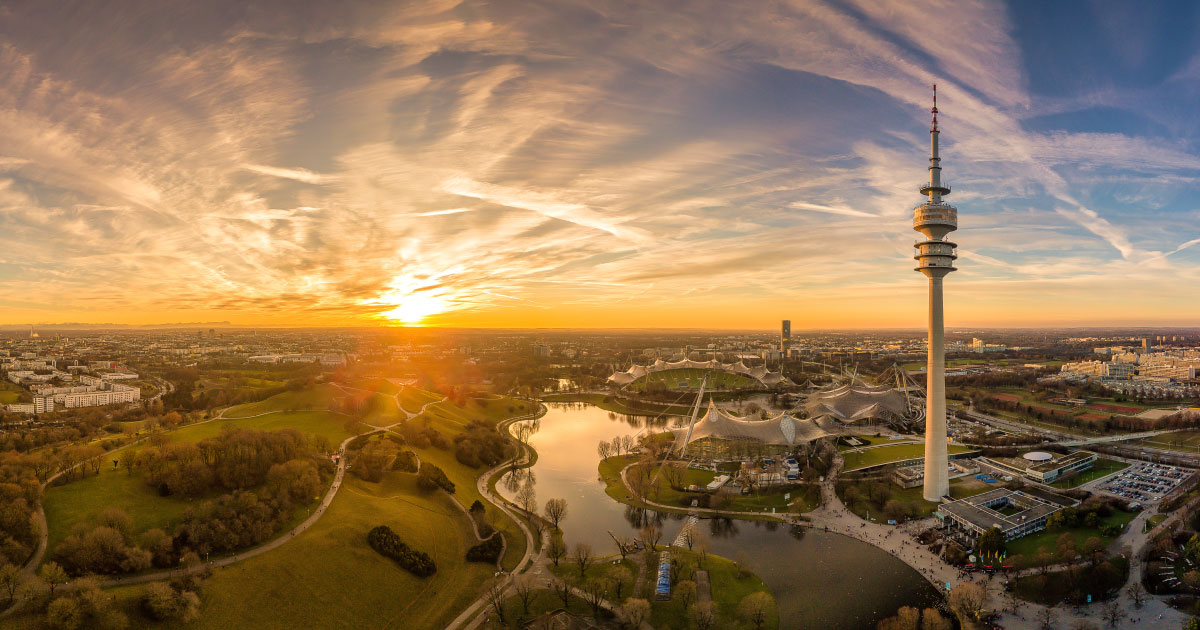
Nora Youbane kennt das Vertriebsgeschäft in allen Facetten – und zwar „from scratch“, wie die Vertriebs-Experten sagen. Was Sales Enablement mit Highspot für den Vertrieb leistet, hat sie schon bei ihrem vorigen Arbeitgeber erfahren. In unserer Reihe „Drei Fragen an…“, in der wir regelmäßig die Köpfe und Ideen hinter Highspot vorstellen, erklärt Nora, warum sie für Sales Enablement brennt. Sie verrät uns auch, wieso die Covid-19-Pandemie ihren Karriereweg nicht ausgebremst hat und inwiefern sie die Krise auch als Motor für die Digitalisierung am Standort Deutschland erlebt.
Nora, was liebst du an Sales Enablement und deinem Job?
Ich spreche mit vielen unterschiedlichen Menschen aus verschiedenen Branchen. Dadurch erlebe ich täglich, vor welchen Herausforderungen Unternehmen stehen, welche Ideen sie für ihr Business haben und wohin sie möchten. Das ist für mich total inspirierend und motiviert mich jeden Tag neu, bestehende Kundenbeziehungen zu stärken und weiter auszubauen. Gerne stelle ich dann die berühmten sechs Fragen, die sich jeder Sales- oder Marketing-Verantwortliche stellen sollte. Es gibt keinen Stillstand und keine wirkliche Routine, jeder Arbeitstag ist anders. Gleich bleibt allerdings: Wir sammeln Kundenfeedback und reagieren auf die Marktanforderungen und Bedürfnisse. Als strategischer Partner wachsen wir so mit unseren Kunden mit.
Was ich an Highspot liebe ist, dass ich hier keine Nummer bin, die eine definierte Leistung bringen muss. Ich bin der Mensch Nora. Und ich weiß aus eigener Erfahrung, wie genial unsere Lösung ist und treibe voran, was mich begeistert. Das ist für mich extrem wichtig. Sales Enablement bringt viele Vorteile, die ich selbst schätze. Es ist großartig, wie viel Zeit Vertriebsmitarbeiter durch Sales Enablement sparen können. Dies zahlt auf die zwei wesentlichen Voraussetzungen ein, um heute im Vertrieb zu überzeugen: Authentizität und die richtigen Tools, wie Highspot, um sich vom Wettbewerb abzuheben.
Wie läuft der Vertrieb zukünftig ab – und welche Rolle spielt Sales Enablement dabei?
Für die weitere Entwicklung im Vertrieb erwarte ich die flächendeckende Digitalisierung über alle Branchen hinweg. Die Covid-19-Pandemie hat Deutschland in diesem Punkt in Bewegung gesetzt. Sales Enablement boomt und wird immer mehr zum Must-have. Für viele Branchen ist unsere Lösung ein Digitalisierungs-Enabler.
Dabei profitieren alle Unternehmen, die mehr als 50 Contentpieces im Vertrieb nutzen, von Sales Enablement. Das beginnt beim Start-up mit 35 Mitarbeitenden und geht bis zu Großunternehmen, die unsere Lösung erstmal in einem Bereich testen und dann weiter ausrollen. Besonders IT-Unternehmen sind extrem offen für Sales Enablement. Dort ist die Digitalisierung schon weit fortgeschritten. Aber auch andere Branchen verstehen die Mehrwerte sehr schnell. Effiziente Prozesse, KI-gestützte Empfehlungen und das Zusammenbringen von Marketing und Vertrieb – die Vorteile sprechen für sich. Dazu muss man wissen: Sales Enablement ebnet den Weg zum Hybrid Selling. Denn egal ob auf dem Notebook oder auf dem Handy – wenn ein Thema aufkommt, kann der Vertrieb sofort liefern und dem Kunden eindrucksvoll zeigen: Wir sind am Ball, kennen deine Anforderungen und haben eine passgenaue Antwort. Dies ist die Zukunft im Vertrieb.
Du hast mitten im Lockdown deinen Job gewechselt und bist trotz Homeoffice durchgestartet. Ein Zufall – oder was ist das Geheimnis deines Erfolgs?…
Highspot hat mich als Endnutzer komplett überzeugt, deswegen habe ich den Sprung trotz Homeoffice gewagt. Ich wollte meinen Beitrag dazu leisten, die Digitalisierung des Vertriebs im europäischen Raum voranzutreiben. Dieses Risiko habe ich in keinster Weise bereut. Das Onboarding mit Live-Sessions, auch mit den Kollegen in den USA, war super organisiert. Wir arbeiten selbst ja auch mit unserer Sales Enablement-Lösung, die nach den Live- Sessions passende Lektionen anbot, an denen ich allein teilnehmen konnte. In kleinen Häppchen lernt man alles, ohne überfordert zu sein und überprüft sein Wissen direkt in den Frage-Teilen. So bin ich mühelos immer weiter in die Welt des Sales Enablements eingetaucht. Gleichzeitig waren die Türen zu meinen Ansprechpartnern in Deutschland immer offen.. Ich hatte also mehrere Möglichkeiten, tief in Sales Enablement hineinzuwachsen und im richtigen Tempo ein Profi zu werden.
Extrem wichtig ist – gerade im Homeoffice – der ständige Austausch im Team. Ich halte mich an meine Kollegen, die mich durch ihre positive Art, ihr Mindset und ihr Gespür, auf die Kunden einzugehen, inspirieren. Es geht darum, gemeinsam weiter zu wachsen. Natürlich haben wir uns in der Zwischenzeit auch persönlich kennen gelernt. Diese monatlichen Treffen haben mir noch einen wichtigen zusätzlichen Impuls gegeben. Denn einer Sache muss man sich bewusst machen: „Success is never owned, it is rented and the rent is due every day!” (Erfolg ist niemals Eigentum, er ist nur gemietet und die Miete ist jeden Tag neu fällig.)




